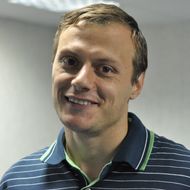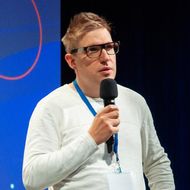‘The Goal of the Spring into ML School Is to Unite Young Scientists Engaged in Mathematics of AI’
The AI and Digital Science Institute at the HSE Faculty of Computer Science and Innopolis University organised a week-long programme for students, doctoral students, and young scientists on the application of mathematics in machine learning and artificial intelligence. Fifty participants of Spring into ML attended 24 lectures on machine learning, took part in specific pitch sessions, and completed two mini-courses on diffusion models—a developing area of AI for data generation.
The main topics of the scientific presentations were reinforcement learning, generative, and diffusion models.

Alexander Gasnikov, Rector of Innopolis University
‘The distinctive features of the Spring into ML school are its youthfulness and the strong fundamental component of scientific presentations. All lectures and talks were given by young scientists and researchers for equally active students, and most of the presentations were based on mathematics. It is wonderful that our university, which is one of the research centres in the field of artificial intelligence in Russia, became the venue for this scientific event.’
The published presentations (in Russian) can be found here.
The school programme also included such games as Name That Tune and What? Where? When?, movie screenings, excursions to Kazan, Sviyazhsk, and other networking events.

Alexey Naumov, Director for Basic Research at the AI and Digital Science Institute at the HSE Faculty of Computer Science
‘The goal of the Spring into ML school is to unite young scientists engaged in mathematics of AI. As a result of school discussions, several interesting projects emerged with the intersection of participants' competencies, which could lay the foundation for potential publications at A* conferences.’

Petr Mokrov, Skoltech (Skolkovo Institute of Science and Technology), participant of the Spring into ML School
‘The format and organisation of the school turned out to be suitable for such events. There are very few academic research groups in Russia working on machine learning and artificial intelligence. The participants know each other well, many became friends, but often they do not actually understand what their colleagues in adjacent teams are working on. Throughout the week spent in Innopolis, students, doctoral students, and academic supervisors communicated and exchanged experience, discussed their tasks, and addressed issues arising at the intersection between research directions. I found myself among like-minded people. And it was great.’
According to the organisers of the event from HSE and Innopolis University, the Spring into ML school can become a regular platform for discussion and exchange of experience among scientists and will launch a series of events in Russian IT universities dedicated to the mathematical foundations of artificial intelligence.
Innopolis University specialises in education, research, and development in the field of information technology and robotics. The Russian IT university collaborates with 297 industrial partners. The university's portfolio includes 114 projects for companies such as Gazprom, Aeroflot, KAMAZ, Norilsk Nickel, Rosseti, RusHydro, Severstal, and others. At Innopolis, there are 1,239 students from 35 countries as well as 152 scientific and pedagogical employees from 15 countries with working experience in leading world universities and IT companies.
